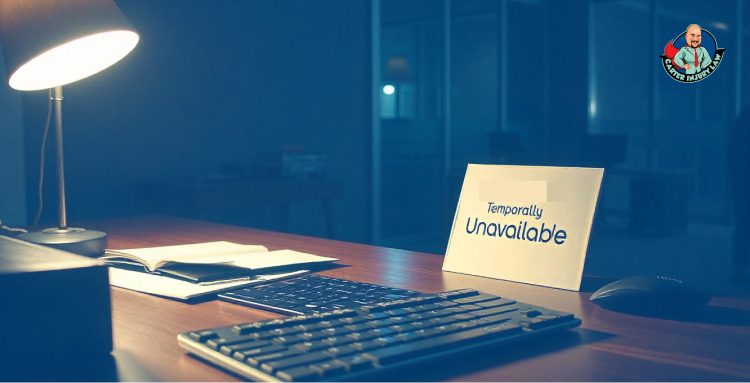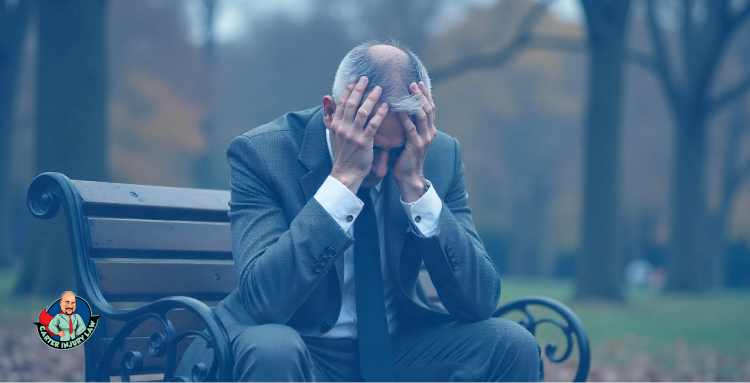
blog
February 22, 2025
What Damages Can You Recover in a Florida Personal Injury Case?

If you’ve been hurt in Florida, you might find yourself asking, 'What can I recover from all this?' It’s a fair question, and the answer, like most things, isn’t simple. Life is rarely that generous. But the law, in its imperfect way, offers two types of compensation: economic and non-economic damages. We won’t get into punitive damages here, but those are punishment damages that a defendant sometimes has to pay if their conduct was especially egregious or outrageous.
The first is practical, medical bills, lost wages, and the cost of what’s been broken. The second is harder to measure, like trying to hold water in your hands. It’s for the pain you carry, the nights spent staring at the ceiling, the way your world has shifted. Both are real, yet neither can undo what’s been done. Let’s look closer at what’s possible, and how Florida’s laws shape what remains of your fight.
(1) Economic Damages: Recovering What You’ve Lost
When it comes to economic damages, we're talking about the tangible, out-of-pocket costs you’ve incurred because of your injury—things that you can easily calculate and prove with receipts or bills. These damages are all about covering the actual expenses that have a direct financial impact on your life.
To make things clear, here’s a breakdown of what you might be entitled to:
Past and Current Medical Expenses
This includes any treatment you’ve already received, like emergency room visits, surgeries, physical therapy, or doctor’s appointments. It doesn’t matter if the treatment was in the past or is happening right now—these are all part of the medical expenses you can claim.
And don’t forget about ongoing treatments, like prescription medications or follow-up visits to specialists. These costs add up quickly, and you’re entitled to get reimbursed for them.
Future Medical Expenses
If your injury requires long-term care or future procedures, you’re also entitled to compensation for that. Maybe you need additional surgeries, physical therapy, or home care down the line. Even though you haven’t had those expenses yet, they’re a direct result of your injury, and it’s important to account for them.
Your doctors or medical providers might give a prognosis, recommending certain treatments, and these recommendations can be used to estimate what your future medical bills will look like and help secure compensation.
Lost Wages

If you couldn’t work because of your injury, that lost income is something you can recover. This includes the paychecks you missed out on while you were recovering. Whether you were laid up in bed or spending time at appointments, you shouldn’t be left financially burdened because of time missed from work. Lost wages can also apply if you have to take time off to care for a loved one after their injury.
Future Loss of Earning Capacity
This is where things get a little more complex. If your injury is severe enough that you can't go back to the same type of work you were doing before—whether because of physical limitations or an inability to perform certain tasks—This compensation covers both your current losses and the long-term impact on your ability to work of any individual injured worker in Florida.
For example, Let’s say you were involved in a car crash and suffered a serious knee injury. After months of physical therapy, your doctors determine that you can’t return to your job as a landscaper because your knee won’t handle the physical demands. Now, you’re facing the loss of income because you can’t do your previous job. In this case, you'd be entitled to compensation for your loss of future earning capacity.
Property Damage
If your car, bike, or any other personal property was damaged in the accident, you’re entitled to recover the costs of repairing or replacing it. This could include things like fixing your car after a wreck or replacing your damaged phone or other personal items. Property damage may seem straightforward, but it’s important to keep track of these costs, as they can add up quickly, especially in auto accidents.
In short, these are the bills you can show on paper—the expenses you can back up with receipts, pay stubs, medical records, or repair invoices. They’re the costs that make the difference between getting your life back on track and struggling to get by after an injury.
(2) Non-Economic Damages: Get Compensation Beyond the Bills

Now, let's talk about the other side of the coin—non-economic damages. These aren’t the types of damages that you can slap a price tag on, like a hospital bill or a car repair. Instead, these are intangible losses, but they still have a huge impact on your life. And while they’re harder to calculate, they are just as important as the economic damages we talked about earlier.
So, what kind of non-economic damages might you be entitled to?
Pain and Suffering
Pain and suffering is a well-known non-economic damage, covering both the physical pain and mental distress caused by an injury. If your injury leads to chronic pain or ongoing treatments, it can take a serious toll on your body and mind. This pain often lingers well after medical care, affecting everyday life—whether it’s back pain that makes sitting uncomfortable or a knee injury that limits your mobility. It’s the kind of pain you can’t see, but it’s very real.
Loss of Enjoyment of Life
Imagine this—before your injury, you were always the life of the party. You loved playing with your kids, running around at the park, or going out with friends. Now, maybe you can’t even enjoy the simple pleasures you once took for granted. That’s a huge emotional loss, and it’s something that the law recognizes as a real loss. You may be entitled to compensation for the activities you can no longer do, whether it’s sports, hobbies, or even spending time with your loved ones in the way you used to.
Emotional Distress
An injury doesn’t just affect your body—it impacts your emotions too. The stress of medical bills, anxiety from missing work, and frustration of losing activities you love can weigh heavily. Emotional distress is the toll of uncertainty and fear, leaving you feeling stuck in a situation that’s not your fault.
(3) How Florida’s Comparative Negligence Rule Affects Your Compensation

In Florida, the way your compensation is calculated doesn’t just depend on how badly you were injured—it also takes into account how much fault you share in the accident. This is where the comparative negligence rule comes into play. Simply, the comparative negligence rule means that if you're found to be partially at fault for the accident, the amount of compensation you’re awarded will be reduced by your percentage of fault.
For instance, let’s say you're awarded $100,000 by a jury after a car accident, but the jury finds that you were 20% responsible for the accident—maybe you were speeding just a little or didn’t notice a traffic signal change. In that case, your award will be reduced by 20%, which means instead of receiving the full $100,000, you’d only get $80,000.
I know, that might sound a little frustrating. But the good part is that the rule is designed to be fair. It's about making sure that everyone involved in an accident is held accountable for their actions, even if the accident wasn't entirely their fault.
Additionally, on lawsuits filed after March 24, 2023, there is a new rule in play called Florida’s modified comparative negligence 50% rule. If you, as the injured person, are found to be over 50% at fault for the incident or injury, a jury will be instructed to award you nothing. That’s right, zip zero zilch. That’s just another reason it is important not to talk to insurance companies or defendants after a loss and let an attorney start investigating right away. Although this new law is certainly unfair to injured people, it does not mean you do not have a case. It just means you need to have an experienced lawyer evaluate the case as soon as possible.
Carter Injury Law: How We Help Maximize Your Recovery
In Florida, you’re entitled to two key types of damages: economic and non-economic. However, navigating these claims, dealing with insurance companies, and ensuring everything is properly calculated can put in a lot of distress.
With Carter Injury Law on your side, we’ll make sure every dollar you're entitled to gets accounted for. We’ll work to ensure that your lost wages from missing work and any loss of earning capacity are fully recognized. Whether it’s negotiating with your insurance company or pushing for a fair settlement, we’re here to handle the details so you don’t have to. Plus, we'll make sure that your pain and suffering are fully considered when calculating your compensation.
If you or a loved one has been injured, don’t take the hurdles alone. Carter Injury Law offers no-cost, no-obligation consultation to explain your rights and options. Call us today to fight for the compensation you deserve.
Recent posts


























